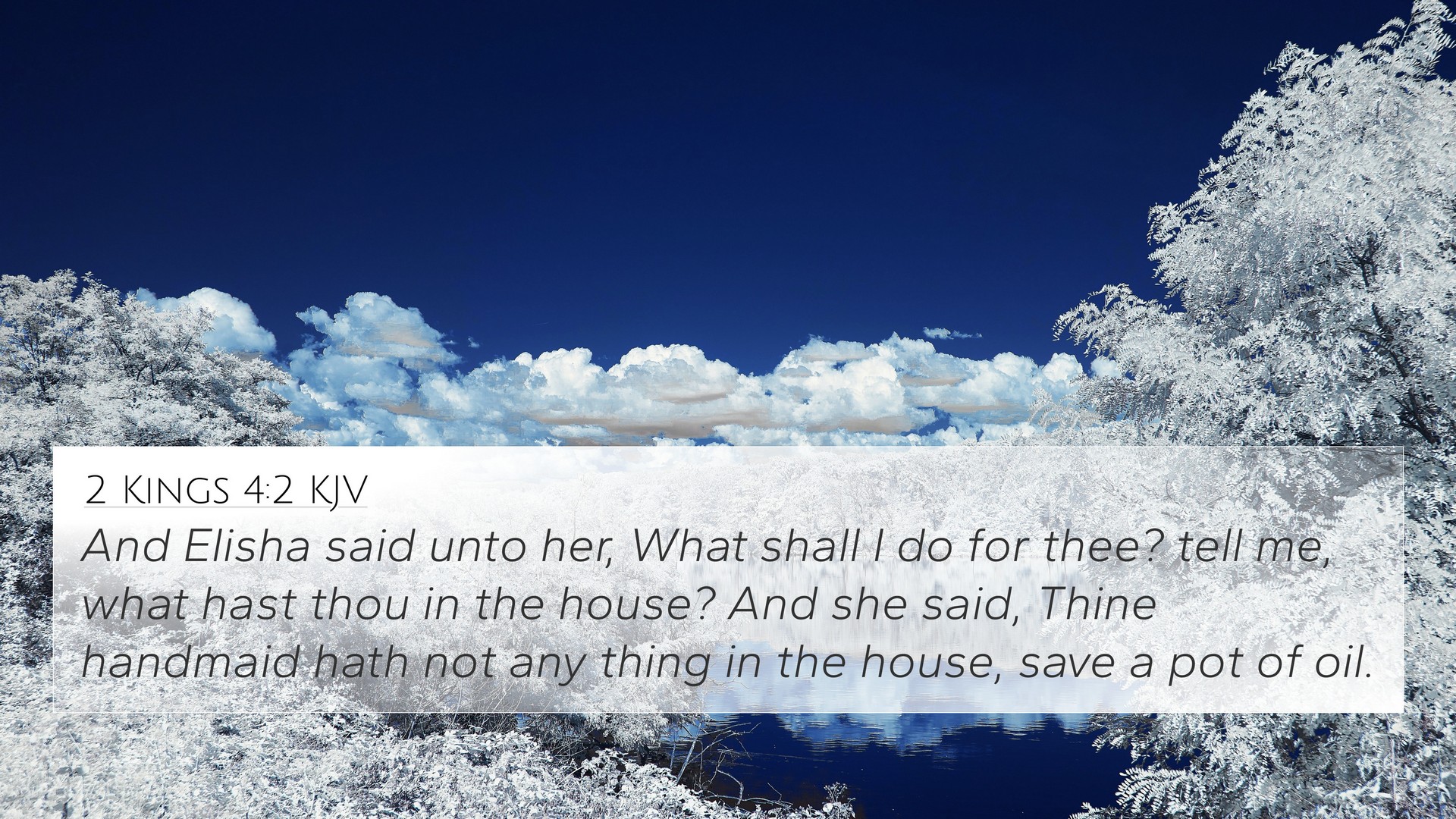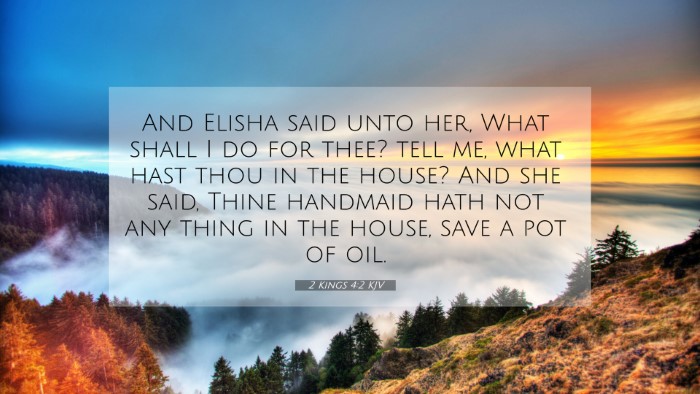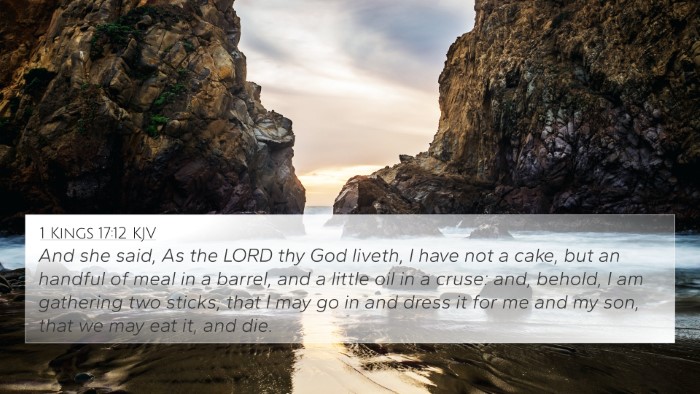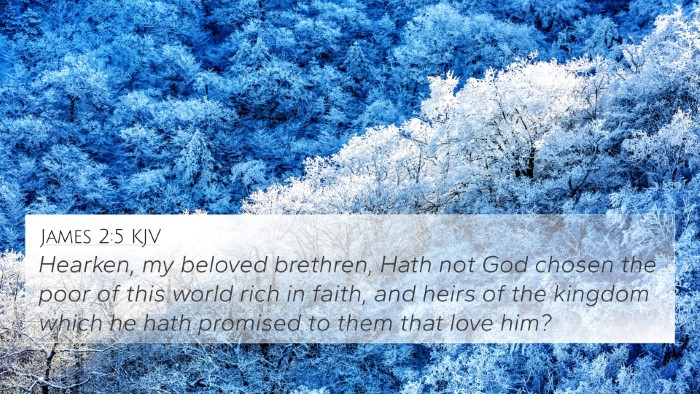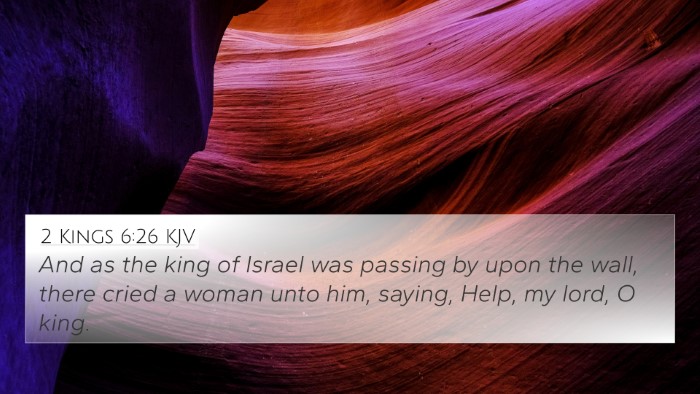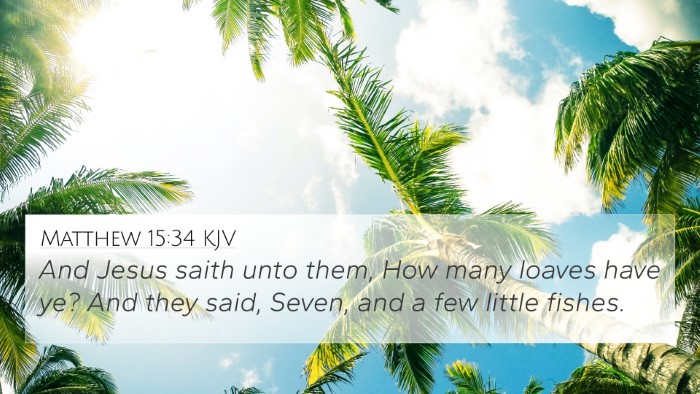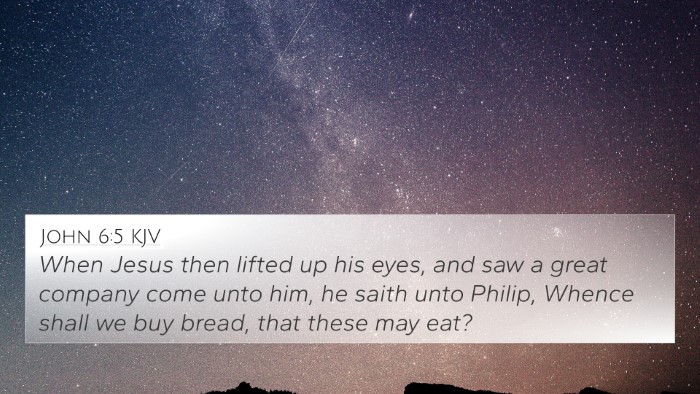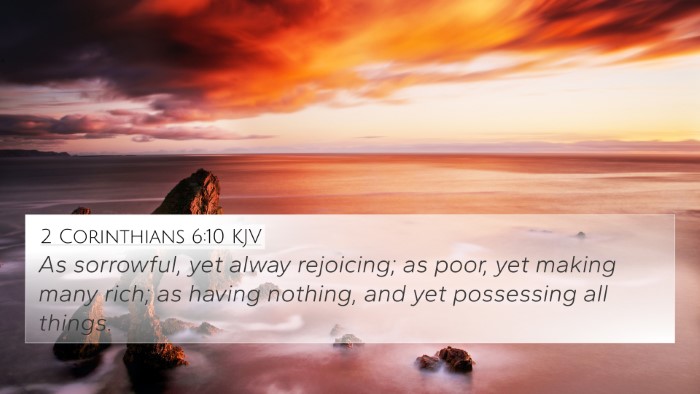Understanding 2 Kings 4:2
Bible Verse: 2 Kings 4:2 - "And Elisha said unto her, What shall I do for thee? tell me, what hast thou in the house? And she said, Thy handmaid hath not any thing in the house, save a pot of oil."
Overview of the Verse
This verse presents a moment of deep inquiry and need. Elisha, the prophet, engages with a widow who is in dire straits. His question prompts her to reflect on her situation and resources, highlighting themes of faith and divine provision.
Commentary Insights
The insights from public domain commentaries reveal several significant layers of meaning within this verse:
-
Matthew Henry's Commentary:
Henry focuses on the desperation of the widow and how Elisha's question not only addresses her immediate need but also encourages her to recognize what little she has. It highlights that God's blessings often come from what seems insignificant.
-
Albert Barnes' Notes:
Barnes emphasizes Elisha's role as a mediator, directing the widow towards her available resources. He notes that the inquiry aims to build her faith and prepare her to receive God's miraculous provision through the humble means she has — a pot of oil.
-
Adam Clarke's Commentary:
Clarke provides a critical observation on the socio-economic context of the widow's situation. He discusses the implications of her financial troubles and suggests that the pot of oil represents the idea of God's potential in the midst of scarcity.
Thematic Connections
2 Kings 4:2 is rich with connections to other biblical passages. Below are several significant connections and cross-references:
- Exodus 35:5: Similar calls for contributions reflect God's work through our offerings.
- Matthew 14:17: Jesus' feeding of the 5,000 with small resources echoes the theme of abundance from scarcity.
- Mark 12:42-44: The poor widow who gives two mites illustrates the principle of giving from one's need.
- Luke 1:53: Mary's song references the filling of the hungry, a theme prevalent throughout Scripture.
- 2 Corinthians 9:8: God's ability to provide abundantly resonates with the message of provision found here.
- Philippians 4:19: Assurance of God's provision for needs aligns well with the lesson of reliance on His resources.
- John 6:12: Collecting the leftovers after the miracle of feeding the multitudes mirrors the careful gathering of resources in this narrative.
- Hebrews 11:1: Faith as the assurance of things hoped for connects with the widow's expectation for divine help.
- James 1:5: Asking God for wisdom in times of need relates closely to the themes present in this interaction.
- 1 Peter 5:7: Cast all your anxieties on Him for He cares for you, which mirrors the widow’s state of being vulnerable and in need of care.
Cross-Referencing in Bible Study
For those seeking to deepen their understanding of scripture, employing tools for Bible cross-referencing is essential:
- Bible Concordance: A resource that helps locate verses and topics efficiently.
- Bible Cross-Reference Guide: Provides connections between verses on similar themes or teachings.
- How to Use Bible Cross-References: Learning how to identify and utilize references can greatly enhance study.
- Bible Chain References: A method for linking verses sequentially by themes or narratives.
- Comprehensive Bible Cross-Reference Materials: Offers extensive resources for deeper thematic studies.
Conclusion
In conclusion, 2 Kings 4:2 serves as a powerful reminder of God's provision, the recognition of our resources, and the importance of faith in moments of need. By understanding this verse in the context of various biblical themes and cross-referenced texts, one emerges with a deeper appreciation of God's workings within our lives.
Applying these Insights
As you engage with the scriptures, consider how the connections and insights from this passage can apply to your life. Reflect on your resources, no matter how small, and trust in God's ability to multiply them. Use the tools mentioned to study and explore further, deepening your understanding of the divine narrative woven throughout the Bible.
